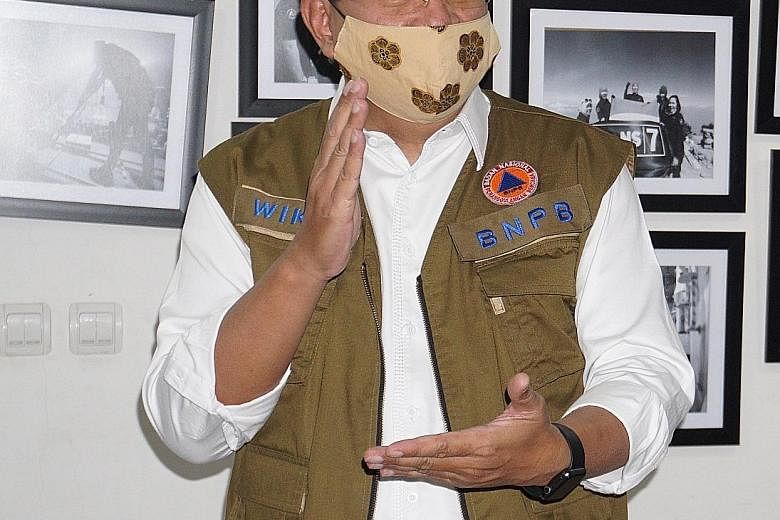JAKARTA • The Covid-19 outbreak in Indonesia may peak next month, with around 100,000 cases and a death toll of over 1,000 people, said a senior official in the fight against the coronavirus.
The projection is based on mathematical modelling of different scenarios by various groups of experts, said Professor Wiku Adisasmito, head of the expert team on Indonesia's Covid-19 task force, in an interview with The Straits Times on Wednesday.
Fatality estimates reflect the moderate containment strategy Indonesia has adopted.
"If we use more rigorous intervention (containment strategy), the cases may be lower," Prof Wiku said, adding that his task force is developing an integrated data collection and management system for Covid-19.
Judging by the unfolding situation, the death toll "may be more than 1,000 at the peak", Prof Wiku said, adding that the government was doing its utmost to avoid this outcome.
Indonesia yesterday reported 27 more deaths from the virus, which has now claimed close to 500 lives and infected more than 5,500 people.
Jakarta, which accounts for about half of the country's confirmed cases, has adopted large-scale social distancing measures since April 10. Several satellite towns around Jakarta adopted the same measures on Wednesday.
Those breaching the rules, which include a ban on gatherings of more than five people, a reduction in the number of passengers in a private car by half its full capacity and no dine-in at restaurants, face a fine of up to 100 million rupiah (S$9,000) and up to one year in prison.
Prof Wiku, however, has expressed concerns over the noticeable increase in people out in public and traffic on the streets.
He stressed that it is the responsibility of local governments to implement and enforce tough measures in their areas of jurisdiction.
He added that local government leaders must also step up campaigns to get people to regularly wash their hands and wear a mask when they leave their homes.
Indonesia has been criticised for not applying harsh enough restraints on people's mobility, risking wider spread of new infections.
The government has yet to issue a ban on the annual mudik, the hometown journey for Hari Raya Aidilfitri which falls late next month, despite mounting calls to do so.
When asked about this, Prof Wiku said: "It is too early to say the government is not banning mudik. We are not even in the Ramadan (fasting month) yet, but everyone is already talking about mudik."
This is the first time an official has hinted that the government may go ahead and ban mudik, although a final decision will not be taken until at least a week from now.


